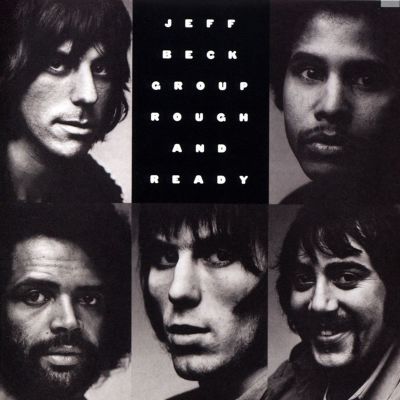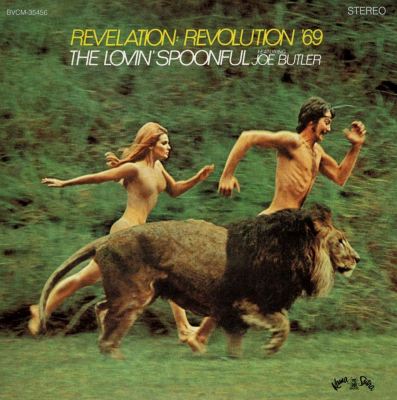Staff Picks for October 2021
October 31, 2021
John Carpenter's dual role as horror director and sound designer for his eerie films of the '70s, '80s, and beyond helped form entire subgenres of synthesizer music, and the eerie, meandering score for his 1980 film The Fog is no different. A little lighter on anxious percussion and bass-heavy synth notes, the pieces here return to haunted piano figures, perfect for the eerie, mist-covered atmospheres of the movie or any creepy occasion.
October 30, 2021
By taking the rudiments of punk, then injecting enough energy and rage to elevate them to an entirely new level of primal aggression, Agnostic Front's piece de resistance ultimately succeeds because it transcends musical art form to create protest rock not necessarily at its most lucid, but definitely at its most visceral.
October 29, 2021
Alicia Keys' classical training bleeds out masterfully in this modern R&B album. The Diary of Alicia Keys is perfect for anyone looking to feel both empowered and humbled by Keys' powerful voice and spirit.
October 28, 2021
Odd harmonies and double-tracked vocals are somehow both delicate and disquieting on this underrated indie rock album from California via Brooklyn. The heartfelt but simple songs incorporate acoustic guitars and drums with electronic handclaps and loops, feeling at once lo-fi and thought-out.
October 27, 2021
Various Artists
Released in 2004, this exquisitely-compiled collection digs deeply into Smithsonian Folkways' vast catalog of maritime music. From Paul Clayton's Foc'sle Singers and the X-Seamen's Institute to Lead Belly, this set is a true historical folk gem.
October 26, 2021
Vulfpeck experiments from song to song on this album, but every track is unified in its flavorfully, funky instrumentals. The Beautiful Game is perfect for those looking for something to both happily chill and dance along to.
October 25, 2021
Released 50 years ago today, Beck's first album without Rod Stewart and Ron Wood dials back some of the blues influence and injects more jazz elements, courtesy in large part to the addition of keyboardist Max Middleton. Guitar parts are predictably intricate and the arena-ready vocals blast alongside the riffs, especially on the remarkably succinct ready-ready highlight "I've Been Used."
October 24, 2021
Responding to the loss of her mother, a breakup, and a move cross-country away from bandmates all at once, this third album by the project of Emily Sprague is necessarily a solitary one. Unapologetically vulnerable and often devastating, its 12 guitar and keyboard songs include a mix of fond and somber remembrances, suicidal ideation, and healing introspections. Occasional sound effects and field recordings, such as the crunching footsteps of piano lament "M," flesh out quiet arrangements on tracks that, despite heavy inspirations, sometimes end on a hopeful note, including closer "Today I'll Have You Around."
October 23, 2021
The 1996 debut from Boston quartet Karate found them somewhere at the nexus of hardcore and slowcore, taking songs with Fugazi-levels of compositional and emotional complexity and slowing them to a patient amble. The band would later infuse jazz elements into this sound, but their first album was a collection of streamlined, mood-heavy emo rock where precision guitar lines did most of the talking.
October 22, 2021
A surprisingly vigorous slab of new wave-inspired power pop, this one-off 1980 project features none other than Herman's Hermits frontman Peter Noone leading a tight combo through a set of infectious bubblegum melodies with uncharacteristically jagged edges.
October 21, 2021
Lust for Life features the same hallowing voice that Lana del Rey has always had, but the tone of this album is lighter and less depressing. While there are still some sad ballads, there's something about the instrumentals on this album that aren't as dramatic as her usual work, but instead more accepting of life as is: a different definition for what the phrase "lust for life" means.
October 20, 2021
As much a sound collage experience as a truly "capital C" classical album, Richter's "post-Classical" style came into its own on his second album. Typewriter sounds and understated readings by Tilda Swinton nestle intimately alongside small string ensembles and swirling winds, tailor-made for cold mornings before the heat comes on.
October 19, 2021
Few bands have captured the angst, sexual frustration, and repressed rage of youth better than the Violent Femmes. The Wisconsin trio captures nearly two decades of post-punk smarminess with Viva Wisconsin, a live retrospective recorded during a one-week tour of their home state in October 1998 that boasts a depth of song choices and performances.
October 18, 2021
While not as universally hooky as their impeccable Keep it Like a Secret, Built to Spill's sixth studio album still contains its share of standout tracks, showcasing Doug Martsch's winding and soaring guitar lines. The album's highlight is the meandering and riffy mini-opus "Conventional Wisdom" in which Martsch asks "why we're all embracing conventional wisdom in a world that's just so unconventional."
October 17, 2021
Volcano is sure to stimulate your senses (and maybe even a couple of other senses you didn't even know existed) with its psychedelic rock sound. Throughout this album, it can feel as if the Temples are asking listeners to come along with them on an exciting yet low-key journey. This could be an interesting pick for exploration on a Saturday night at home.
October 16, 2021
During their storied mid-'60s fling, the two French cultural icons recorded just a handful of tracks together, which are brought together on this collection with earlier Gainsbourg numbers and recordings by Bardot of him and others. On the title track, the actress injects a wistful melodic dimension into Gainsbourg's sung-spoken account of the ill-fated gangsters, producing one of pop music's great duets.
October 15, 2021
It's hard to imagine The Lovin' Spoonful without John Sebastian, but the band soldiered on after his departure, crafting a sweetly unoffensive collection of Aquarian Age tunes on this album. John Stewart's "Never Going Back" is a sun-dappled highlight, but the hippy-dippy sound collage "War Games" can be skipped.
October 14, 2021
True to the second word in its title, if the sound of chaos was ever packaged into an album, it would be Cherry Bomb. Moving from hardcore rap to flowing indie beats at breakneck speeds, Tyler the Creator makes you feel every change of energy from deep within. Listeners should pay careful attention to how opposing sounds work together and to the seamless song transitions.
October 13, 2021
This gargantuan, revelatory box set compiles 8 discs of solo material by Richard H. Kirk, co-founder of British industrial music pioneers Cabaret Voltaire, ranging from mid-'70s experiments recorded at his parents' house to late '80s tracks influenced by the acid house movement. Nearly everything on this set is fascinating, and any fan of CV or early industrial music needs this.
October 12, 2021
Cupid Deluxe is something to behold when you're contemplating your love life and are unsure of what conclusion to come to. Blood Orange's 80s hip hop and funk influences really shine through this album to make you feel the type of love he's talking about.
October 11, 2021
Following hot on the heels of The Strokes, this album felt somehow even more brash and bratty, incorporating elements of The Clash and The Kinks into their perfectly sloppy delivery. Guitars skronk and voices crack on this dangerous-feeling debut where the listener is knocked off-kilter, never knowing if the songs will successfully land, even two decades later.
October 10, 2021
One of the most disastrous releases of the 2000s, Glitter deserves a revisit. After two decades of hindsight buffer and a contextualized reevaluation of how her sound (and voice) changed soon after, this set reveals itself as a true hidden gem of R&B-pop, some of the final examples of Carey's peak vocal abilities and pop savvy. She just doesn't sound like this anymore and it's about time for a Justice for Glitter campaign.
October 9, 2021
Japanese Breakfast's sophomore album features a wonderful assortment of indie rock/pop exploration. It feels as if every track is a different genre or subgenre, though the mellow feeling throughout the album is consistent. If you're looking for a listening journey with a lot of variety and haunting vocals, look no further than Soft Sounds from Another Planet.
October 8, 2021
Centered around a single microphone, the band plays acoustic bluegrass instruments in the traditional style, but there's a sly wink in the music -- like in the trunk of their 1946 Nash Rambler there may be some Lynyrd Skynyrd and Allman Brothers records underneath the Bill Monroe and Flatt & Scruggs LPs.
October 7, 2021
Before they signed to Sire and began making industrial metal, Ministry released a New Romantic synth pop album on Arista in 1983. While long dismissed by Al Jourgensen as an embarrassing attempt to make blatantly commercial music, the album remains a low-key favorite of certain new wave devotees, and at this point there's no shame in saying that it's one of their most enjoyable efforts. The whole first side is especially great, particularly the funk-meets-freestyle "I Wanted to Tell Her."
October 6, 2021
This misunderstood release from their mainstream glory days threw their standard formula out the window in favor of contemporary trends, tackling funky new wave ("Cherry Lips"), classic girl group harmonics ("Can't Cry These Tears"), hip-hop ("Til The Day I Die"), trip hop ("Nobody Loves You"), and more. It's both very 2001 and distinctly Garbage. Maybe too ahead of its time, it's set to be reevaluated this October with a mega deluxe reissue.
October 5, 2021
The Arctic Monkeys are an ever-evolving band, each album in its chronology experimenting with musical elements slightly different than the one before. In AM, the sound of their angsty, fiery spirit comes out beautifully.
October 4, 2021
With Brass Fantasy, trumpeter Lester Bowie took pop tunes and infused them with an ebullient mix of New Orleans Second Line, funk, and a dash of the wry, avant-garde humor he championed with the Art Ensemble of Chicago. Few jazz artists could take on Marcus Miller and E.U.'s '80s go-go anthem "Da Butt" right alongside Billie Holiday's haunting "Strange Fruit" and do it with as much joyful élan as Bowie does on Serious Fun.
October 3, 2021
Though this album lacks a range in emotion beyond heartbreak and angst, it features some delightful productions. My Dear Melancholy is wonderful for anyone going through a movie-worthy breakup.
October 2, 2021
Original Soundtrack
There is absolutely no reason that this soundtrack is as good as it is, but it somehow captured a very specific moment in the early '90s when electronica, alternative and industrial music were all nudging their way into the mainstream. The leadoff track, David Bowie's "Real Cool World" thrums with techno beats and synth shimmers, and sets the tone for the entire album.
October 1, 2021
One of Elmer Bernstein's finer film scores, only a handful of these pieces made the original 1984 Ghostbusters soundtrack, most of which was given over to pop fare like Ray Parker Jr.'s hit theme song and Mick Smiley's mercurial "Magic." Released here in full, the dynamic scale and bombast of his original score is deeply satisfying.
![The Fog [Original Motion Picture Soundtrack]](https://fastly-s3.allmusic.com/release/mr0000826231/front/400/ISzLmwh5zVWk45anZBUNu5hUoDg0hsvx4F4sL4oO-nA=.jpg)




























![Cool World [Original Soundtrack]](https://fastly-s3.allmusic.com/release/mr0001783966/front/400/L14LlgWOKj-iuGa_oKPmWFWnbEN5fCjifro6xhIBuB4=.jpg)
![Ghostbusters [Original Motion Picture Score]](https://fastly-s3.allmusic.com/release/mr0005057563/front/400/8DytWWr3l5cLPjq3LkIXzphUoDg0hsvx4F4sL4oO-nA=.jpg)